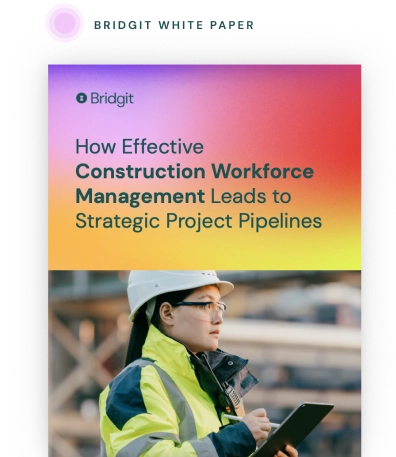When it comes to project execution, it’s essential to have the right professionals on board. One crucial role to consider is plumbing contractors. But what exactly is a plumbing contractor, and why should you consider hiring one?
Table of Contents
In this blog post, we’ll explore the importance of having one on your team and the benefits they bring to your project. Let’s dive in.
The role of a construction plumbing contractor
A successful construction project depends heavily on having plumbing properly installed. Although a general contractor may be privy to some fundamentals, it takes a skilled and knowledgeable plumber to carefully plan and efficiently install any necessary (and often complex) systems.
Having a dedicated professional as part of your team is essential to avoid costly mistakes and delays. Having a non-specialized worker improperly install plumbing not only wastes time but also costs money and causes headaches in the long run. Relying on the expertise and experience of a plumber will save you from these troubles.
A project’s success is heavily reliant on the planning and execution of all aspects, including plumbing. Investing in a reliable professional is an absolute necessity, as they’ll provide valuable guidance on cost-saving materials and high-performance systems during the planning stage, which can ultimately result in considerable savings.
Finding the right contractor
As a construction business, hiring the right contractor is crucial. Here are some things to consider when picking one out.
Experience
When it comes to choosing a plumbing contractor, experience is key. You’ll need someone with extensive knowledge and expertise in the field. Those with years of hands-on experience under their belt will have a deep understanding of all aspects of construction plumbing. They’ve likely encountered numerous challenges and have the skills to overcome them to ensure quality work.
They may have also gone through an apprenticeship or received formal education in plumbing. Some states require continuing education, having professionals attend courses to stay updated on the latest techniques and technologies. This way, they’ll be able to provide expert advice on the latest solutions.

Use your workforce data to create a competitive advantage
Download our white paper to see how effective workforce planning can help stay ahead of labor demands and create a strategic project pipeline.
Licensing and certification
When it comes to hiring a plumbing contractor, one crucial element to consider is their licensure. It’s essential to ensure that the contractor you hire holds a valid license in your state.
A license indicates that the plumber has met all the necessary requirements and regulations set by the state. This includes completing an apprenticeship or formal education, passing exams, and staying up-to-date with continuing education courses.
Hiring a plumbing contractor that’s licensed allows you to rest assured that they’ll have the necessary skills and knowledge to complete the job correctly. It also protects you from any potential legal issues that may arise due to unlicensed work.
References, reviews, and reputation
When searching for a contractor, it’s important to ask for references and dig for reviews from previous customers. This allows you to get an idea of their problem-solving skills and their level of service.
References provide personal accounts from past clients, giving insight into the contractor’s work ethic, timeliness, and quality of work. You can also reach out to industry professionals or local building departments to see if they have any recommendations or warnings about a particular contractor.
A good reputation in the industry can also speak volumes about a plumbing contractor’s reliability and professionalism. A professional with a positive reputation is more likely to provide high-quality work and excellent customer service, as they’ll be striving to maintain their reputation.
What do construction plumbing services include?
When you hire a contractor, you can feasibly expect them to provide a variety of services. They mainly work on installations though.
Their primary role is to install various plumbing systems in a construction project. This includes water supply systems, drainage systems, and sewer lines for residential and commercial properties, whether for manufacturing, industrial, or other purposes.
Planning these systems requires expertise in understanding the layout of a house or commercial property to ensure proper installation. It also involves knowing which materials are best suited for each system to ensure durability and efficiency.
A professional will know, for example, that household plumbing systems typically simply consist of a water supply system that brings in clean water and a drainage system that removes wastewater. In contrast, commercial properties will have more complex systems with multiple levels and larger-scale needs.
They work, as well, with sewerage systems, designing and installing the necessary sewer lines to connect the building to the main sewer line.
Much of their work involves plumbing for kitchens and bathrooms, with a design team planning and installing all necessary plumbing fixtures, such as sinks, toilets, showers, and bathtubs for bathrooms. They’ll ensure that all pipes, pumps, and drainage systems are correctly connected and functioning properly.
Need a better way to manage labor? Consider Bridgit Bench
With all that said, hiring the right professionals is crucial. Once you have the right labor on board, you’ll need to properly manage your workers to utilize them to their full potential.
If you’re looking to improve labor management, consider using Bridgit Bench, an organizational dashboard that gives you a comprehensive view to better track project progress and manage personnel. With Bench, you can view workforce utilization rates and reallocate human capital accordingly.
Request a demo with Bridgit today.


